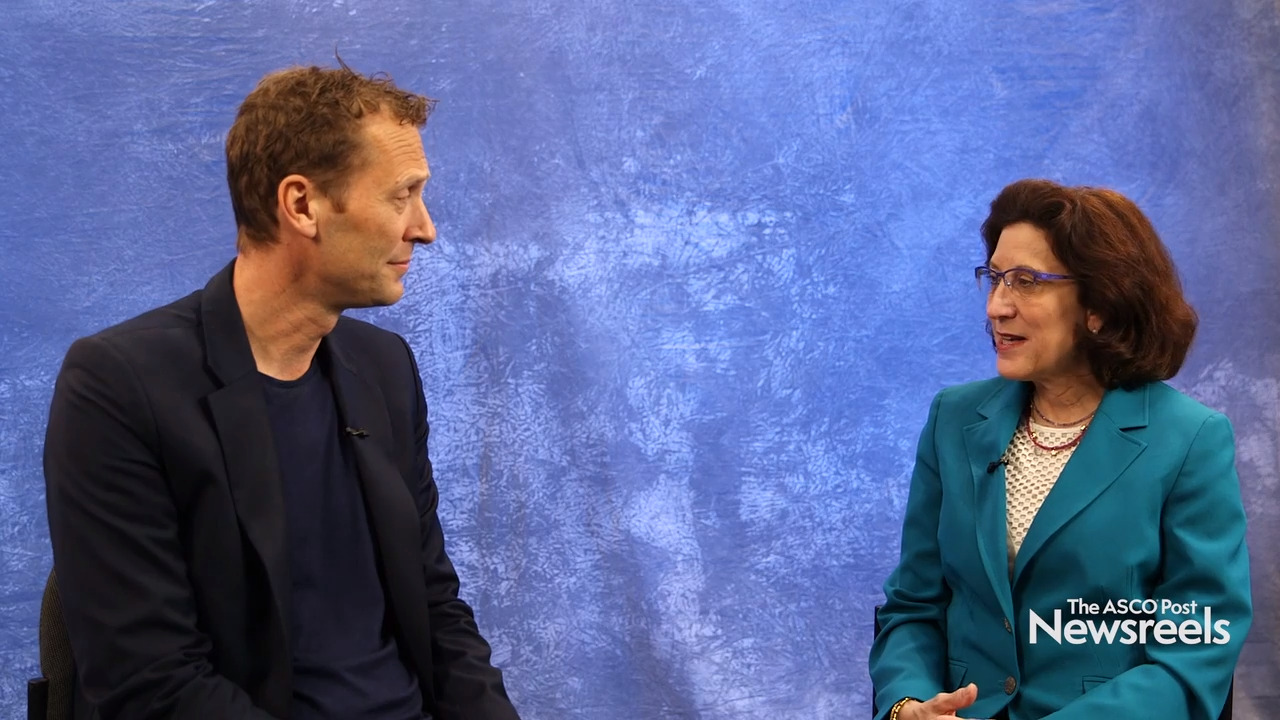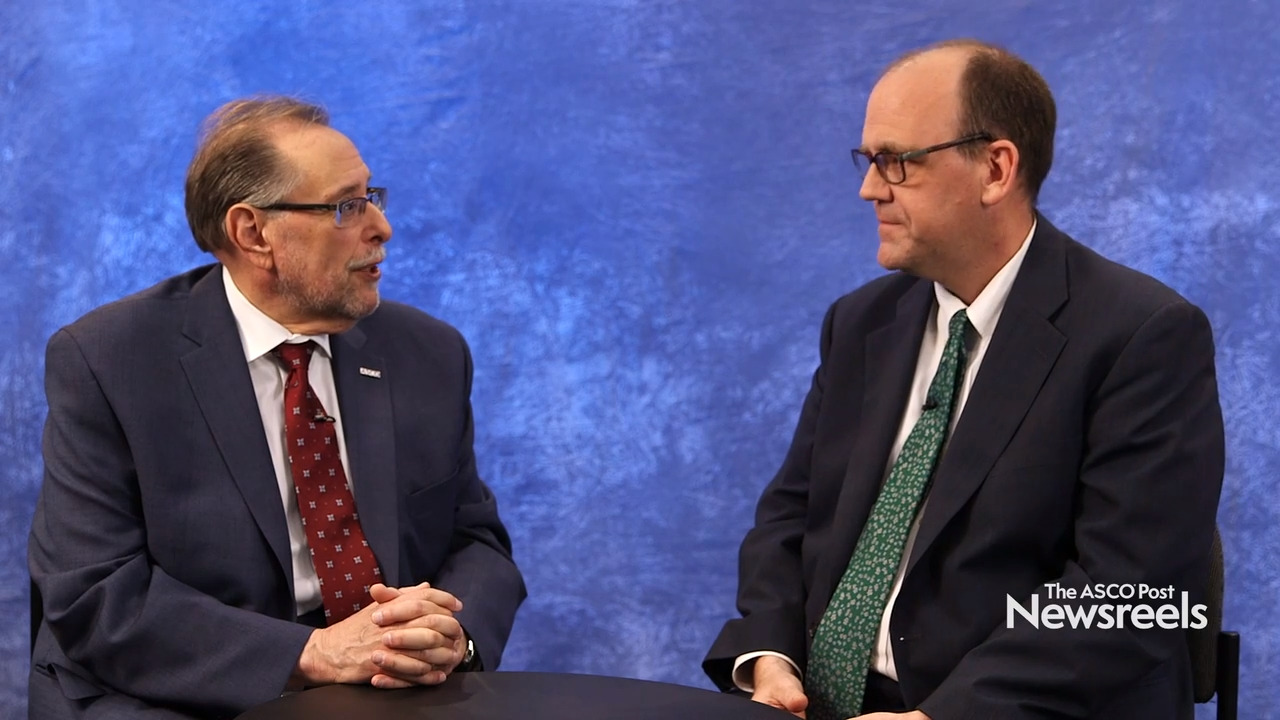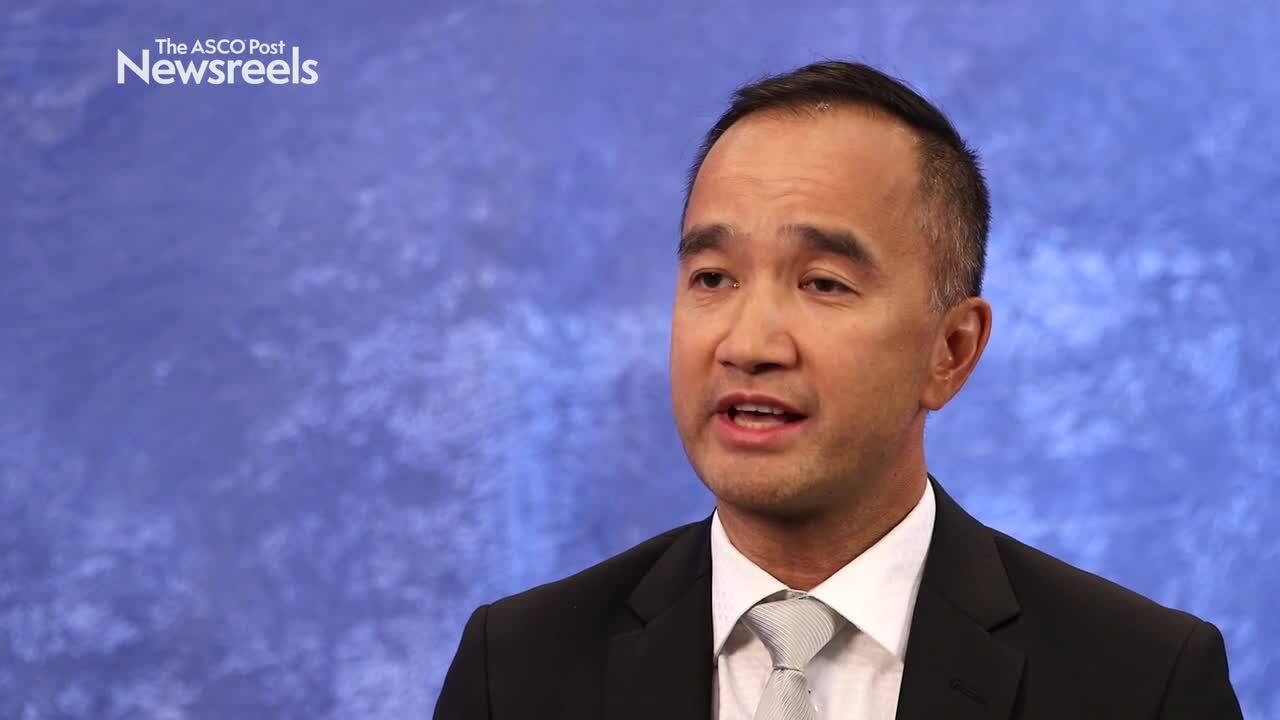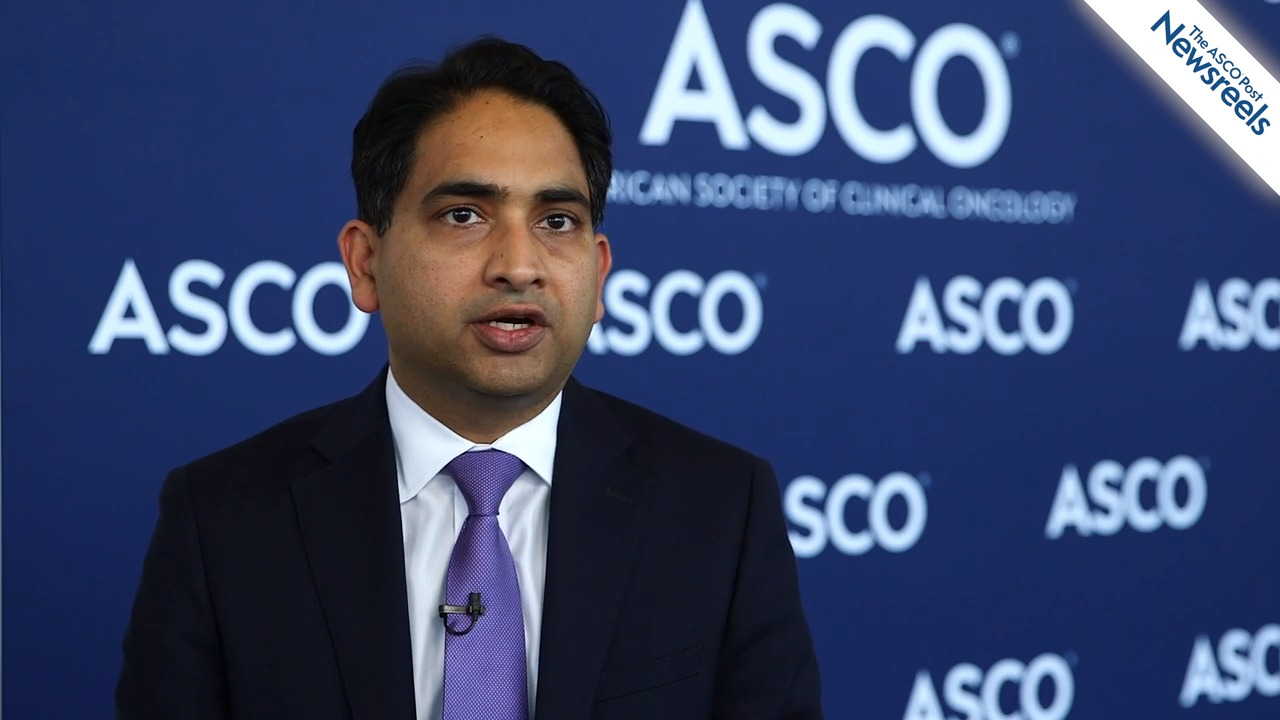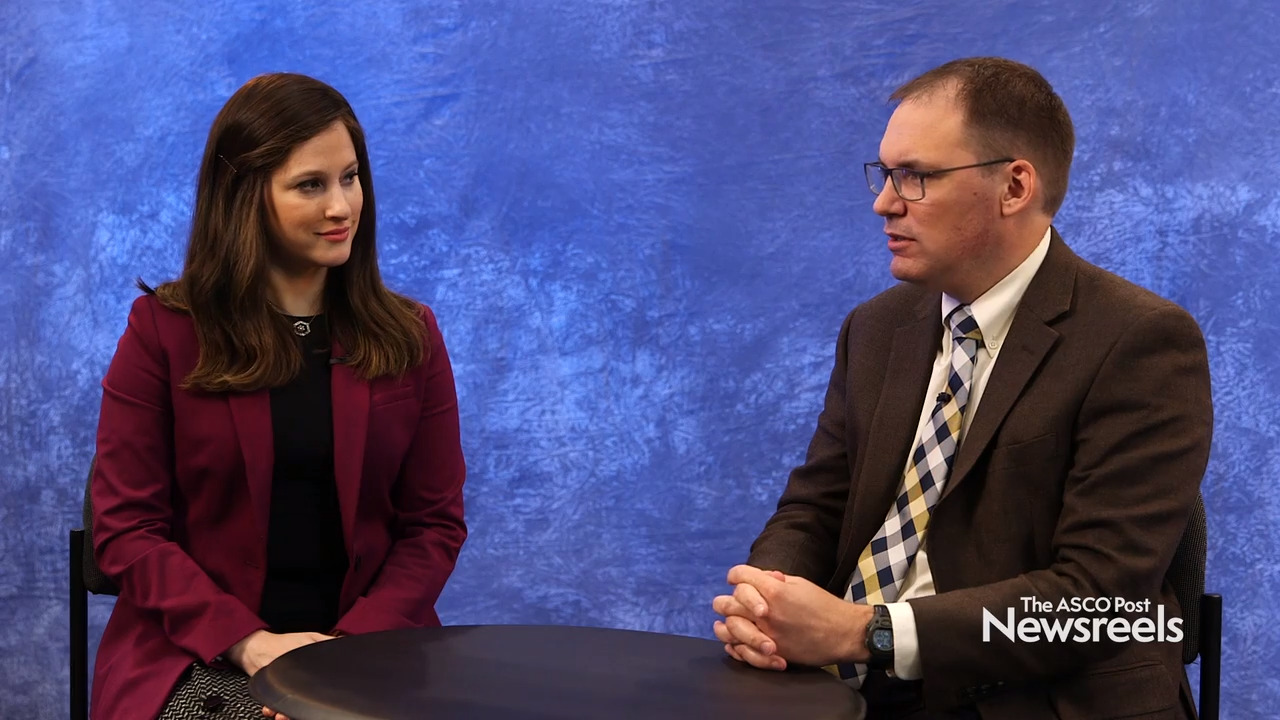Yoland C. Antill, MD, on Endometrial Cancer: PHAEDRA Trial on Durvalumab and Mismatch Repair Status
2019 ASCO Annual Meeting
Yoland C. Antill, MD, of Cabrini Health, discusses phase II data on the effect of durvalumab, a PD-L1 inhibitor, as a single agent in the setting of recurrent or advanced endometrial cancer. Her research compares the response in mismatch repair–deficient and –proficient tumors (Abstract 5501).
Hope S. Rugo, MD, of the University of California, San Francisco, and Peter Schmid, MD, PhD, of Barts Cancer Institute, Queen Mary University of London, discuss an update of the IMpassion130 interim overall survival analysis of atezolizumab plus nab-paclitaxel in previously untreated locally advanced or metastatic triple-negative breast cancer (Abstract 1003).
Richard L. Schilsky, MD, of ASCO, and R. Donald Harvey, PharmD, BCOP, of Winship Cancer Institute of Emory University, discuss their study findings that expanding the clinical trial eligibility criteria for patients with advanced NSCLC would enable nearly twice as many people to be considered for participation (Abstract LBA108).
Kim N. Chi, MD, of BC Cancer, discusses updated results from a phase II study of cabazitaxel vs abiraterone or enzalutamide in patients with poor-prognosis metastatic castration-resistant prostate cancer (Abstract 5003).
Manmeet S. Ahluwalia, MD, of the Taussig Center Institute, Cleveland Clinic, discusses phase II findings on the efficacy and immunogenicity of SurVaxM, a novel cancer vaccine targeting the tumor-specific antigen survivin in newly diagnosed glioblastoma (Abstract 2016).
Miriam Knoll, MD, and Zachery Reichert, MD, PhD, discuss the FORCE trial, which is examining whether radiation can create a more durable response to systemic therapy, and whether using newer, more sensitive imaging technologies can improve outcomes (Abstract TPS5096).
